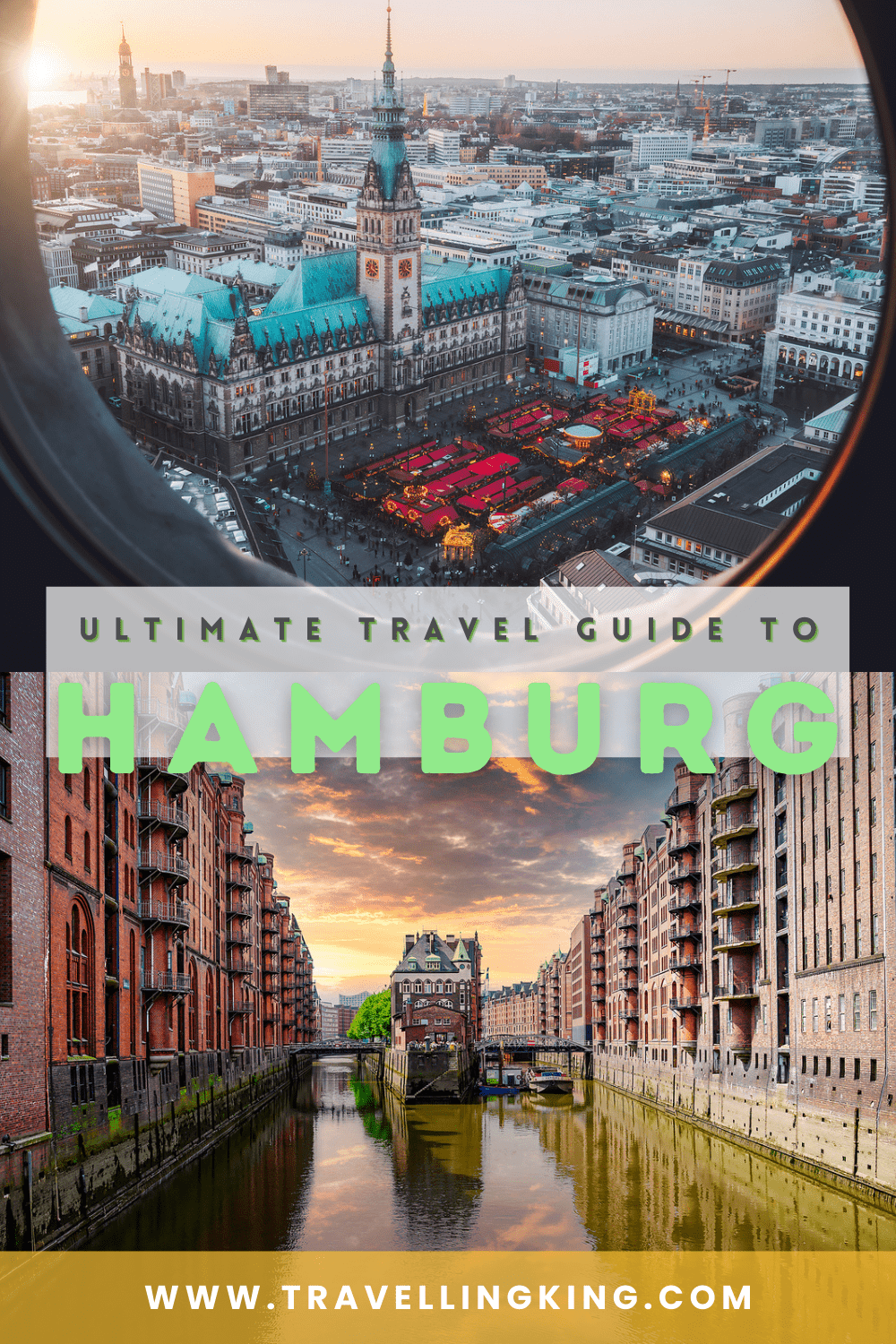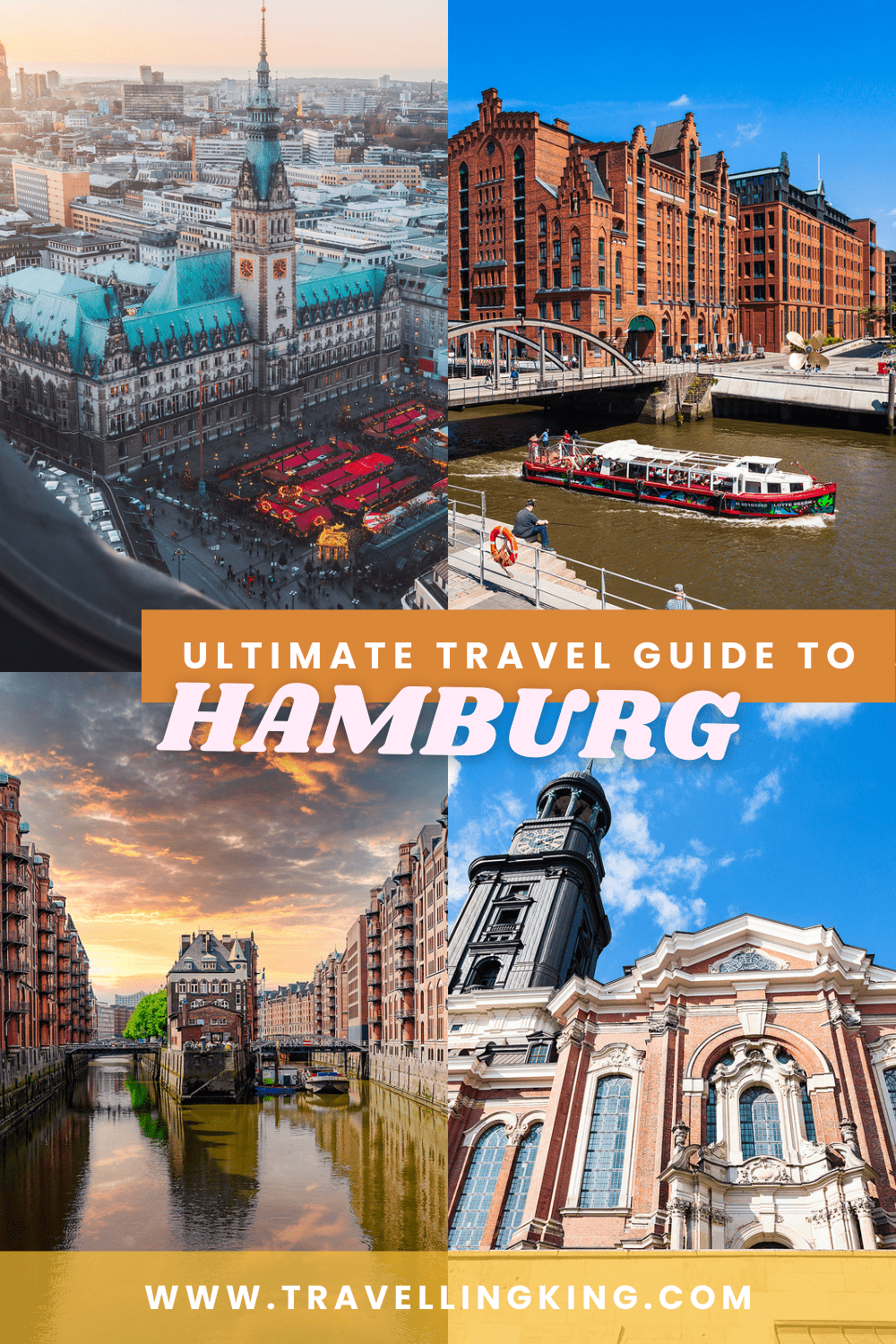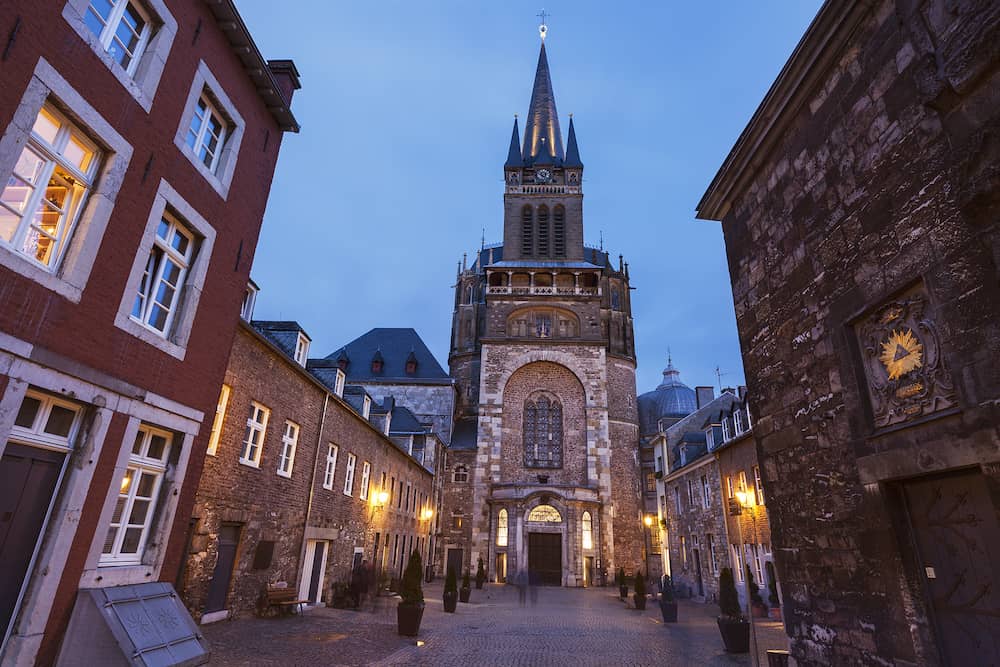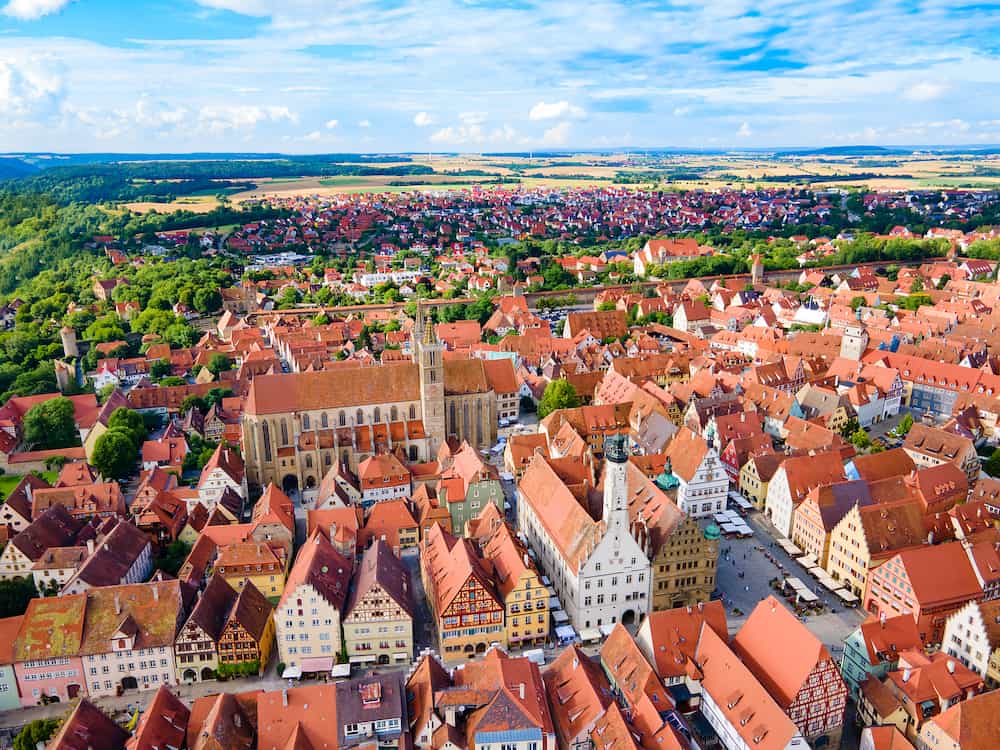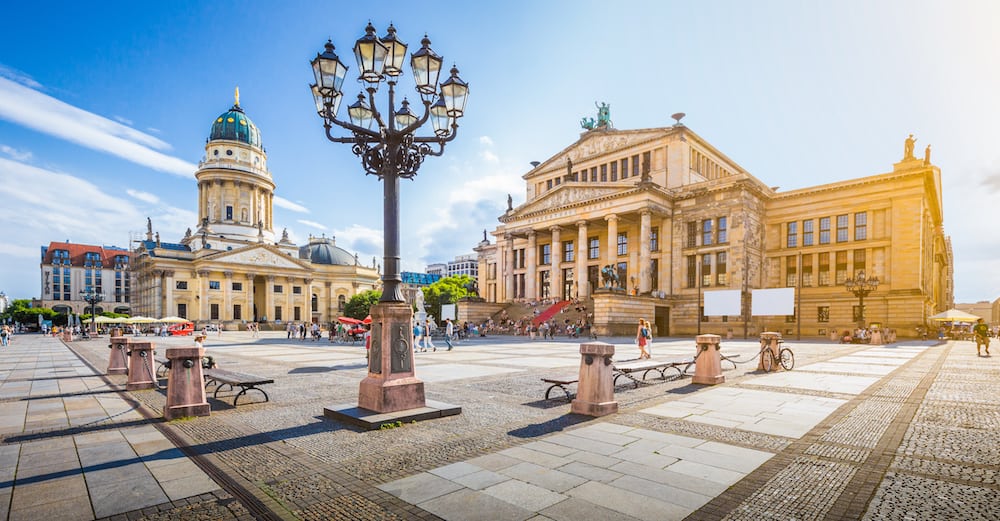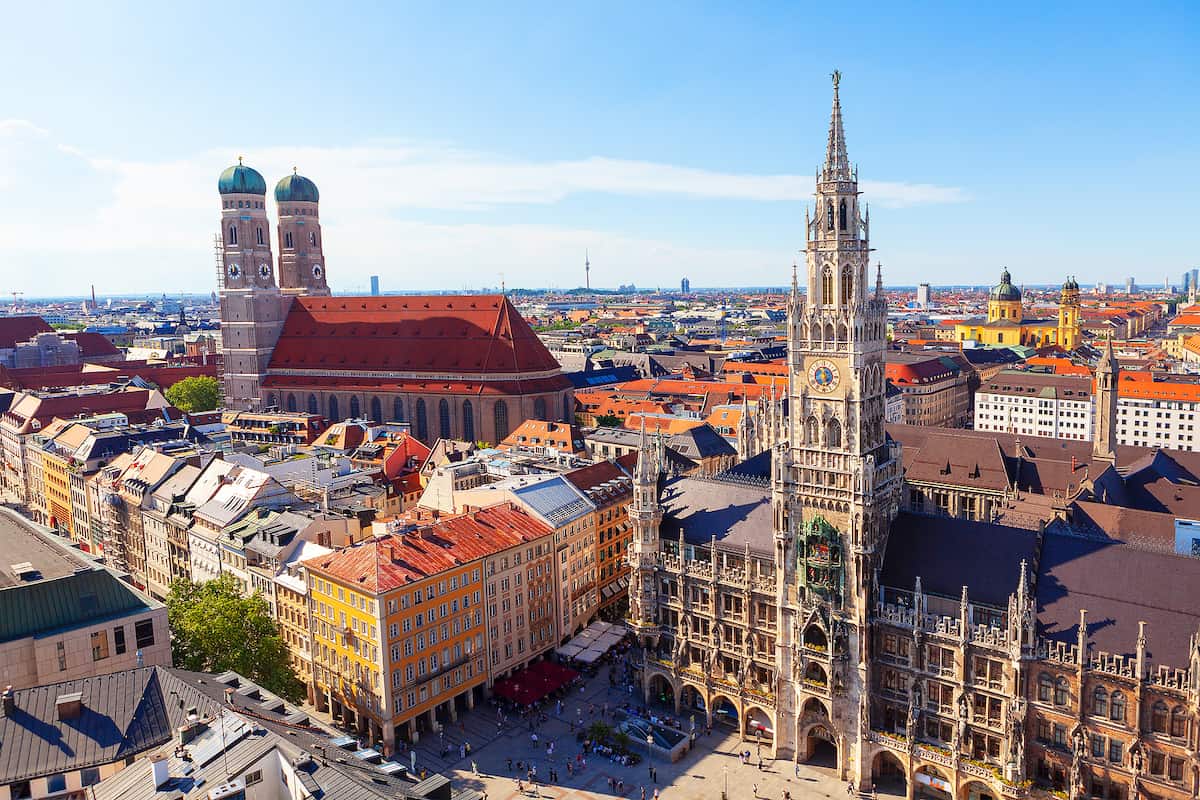Ultimate Travel Guide to Hamburg
Hamburg is Germany’s second city with almost two million residents. Its connection to the North Sea via the River Elbe turned it into an important port city in the 12th century.
Its maritime history means that Hamburg’s skyline is full of industrial buildings and former warehouses transformed into malls and bars with canals lining the streets.
But there are many “prettier” German cities like Munich and Leipzig. And the capital Berlin boasts far more cultural things to do. With so many other options, is Hamburg worth visiting?
Of course! Hamburg is a liveable city which means it has an abundance of green spaces, like Stadtpark and Planten un Blomen. It has fantastic public transport, cultural venues, and every amenity the people of Hamburg need to live content and secure lives.
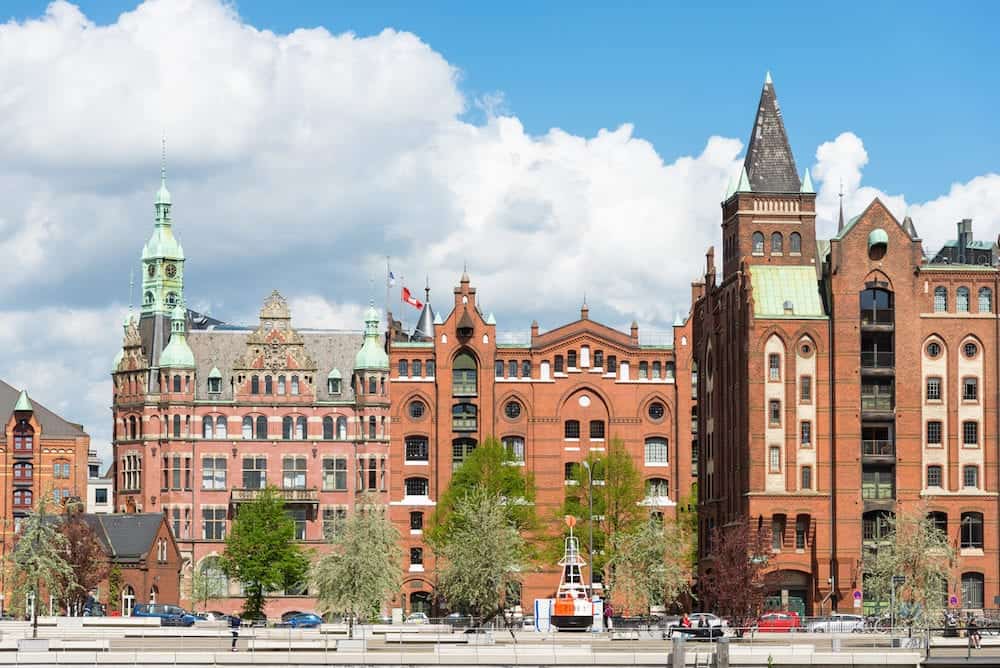
It’s also an underdog with more credentials than people might think. For example, Hamburg’s Warehouse District is a UNESCO World Heritage Site. And it has over 2,500 bridges which is more than those in Amsterdam, London and Venice combined.
Intrigued and want to learn more Hamburg tourist info so you can plan a trip to the city? This Hamburg travel guide will tell you everything you need to know including how to get to Hamburg and how to get around. It will also tell you what to expect, the best time to visit, and all the top things to do in Hamburg.
Plan your trip
Save on fees abroad with the Wise Card—use it at ATMs, restaurants, and for flights or hotels in over 150 countries. Manage 40+ currencies in real-time with the Wise app.
Need Help Planning?
- Cheap Flights: Find the best deals.
- Accommodation: From hostels to luxury stays.
- Car Rental: Affordable options worldwide.
- Sightseeing Tours: Explore without breaking the bank.
- Travel Adapter: One adapter for all your needs.
- Travel Insurance: Don’t risk it—stay covered.
This post includes affiliate links. Read my full disclosure and content policy.
How To Get to Hamburg
Hamburg has the fifth-largest International Airport in Germany. You won’t find it difficult to find direct flights to Hamburg from other major European cities via low-cost airlines like Ryanair and Wizz Air. Expect at least one layover or stopover if you are travelling from outside of Europe.
Travelling by train to Hamburg Hauptbahnhof (the city’s central station) is easy, affordable, and efficient.
Germany has ICE (InterCity Express) trains which connect all major German cities, and some Swiss ones, with high-speed trains. Direct services are also available from cities as far away as Bratislava and Budapest, and there are sleeper trains.
Thanks to its large port, Hamburg is a popular cruise stop-off on some P&O Cruises, Royal Caribbean, and MSC Cruises. FlixBus is a cheap and easy way to travel around Europe by bus and Hamburg is connected by the A1, A7, A23 and A24 Autobahn routes.
The Best Time to Visit Hamburg
Hamburg’s climate is characterised as being sub-oceanic. This means it is humid and rainy with mild, warm summers and mild, drizzly winters. On average, January is the coldest month with lows of -0°C (31°F) and July is the hottest with highs of 23°C (65°F).
Hamburg’s busy season is the peak summer season so flights and accommodation prices will be at their highest. The Christmas Markets, the Reeperbahn festival in September and the summer DOM festival also draw crowds and higher prices.
May and September, the shoulder months, are some of the best times to visit Hamburg because room rates and flights will be less expensive but you’re more likely to enjoy the better and warmer weather.
Keep in mind that Hamburg rains year-round. If you don’t mind the cold, January – April is the best time to visit on a budget. Hamburg isn’t a seasonal destination and attractions stay open year-round.
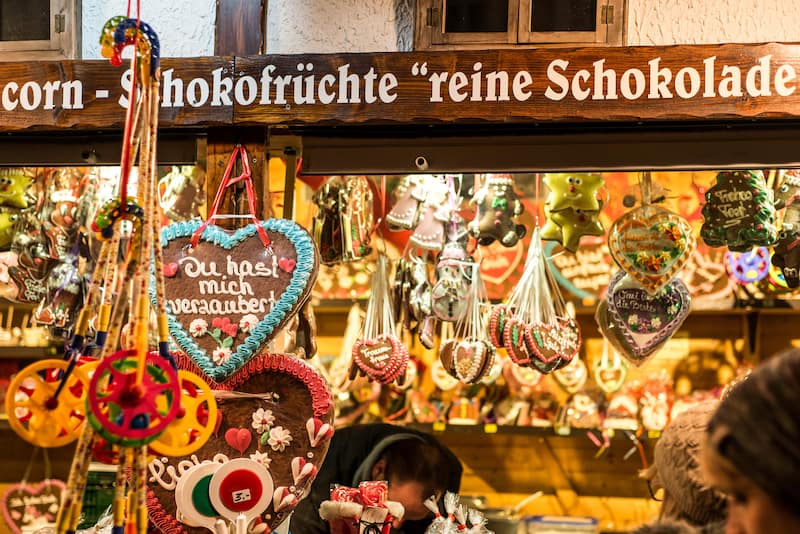
What to Expect in Hamburg
Hamburg’s main language is German though you can expect hospitality workers to speak English too. Many might also speak Spanish and French though this isn’t a given. If you need directions from locals, younger generations are more likely to speak English.
The currency in Hamburg, like the rest of Germany, is the euro (€). It’s one of the most expensive cities in Germany to live in but it’s about average for tourists. And you might expect Germans to prefer card payments, but around 80% of all payments in Germany are still made in cash.
Bring your travel debit card but also have some cash with you at all times. Tip around 5-10% in restaurants as a kind gesture but it’s not necessary elsewhere.
Hamburg is a typical European city in regard to safety. Be wary of pickpockets in tourist areas and be careful who you talk to at night.
How to Get Around Hamburg
Germany is famous for its efficient public transport services so getting around a big city like Hamburg couldn’t be easier.
The city has both an S-Bahn and a U-Bahn which are overground and underground metro networks. They cover most of the city, including the airport and outskirts, and you can buy tickets from machines in the stations. There are no gates but guards carry out random spot ticket checks.
Hamburg’s bus network runs 24/7 and covers parts of the city that the S-Bahn and U-Bahn don’t. You can buy bus tickets from the driver. Alternatively, the Hamburg Card and Hamburg City Pass include free or discounted transport on the metro, trams, buses, and ferries.
StadtRad is Hamburg’s city bike service if you’d prefer to cycle. Sign up to use and pay for them via their website. Taxis (usually white) are easy to find and the city has Uber too.
Things To Do in Hamburg
Wander Around the Warehouse District
The Speicherstadt and Kontorhaus districts are UNESCO World Heritage Sites because they make up one of the largest port warehouse complexes in the world. Some of the 30+ buildings even date back to 1885.
Walk along the canals and attempt to soak in all the history in those red bricks. You’ll also find the new Elbphilharmonie building in this neighbourhood.
This large concert building is also Hamburg’s tallest building and its design is reminiscent of the city’s seafaring past.
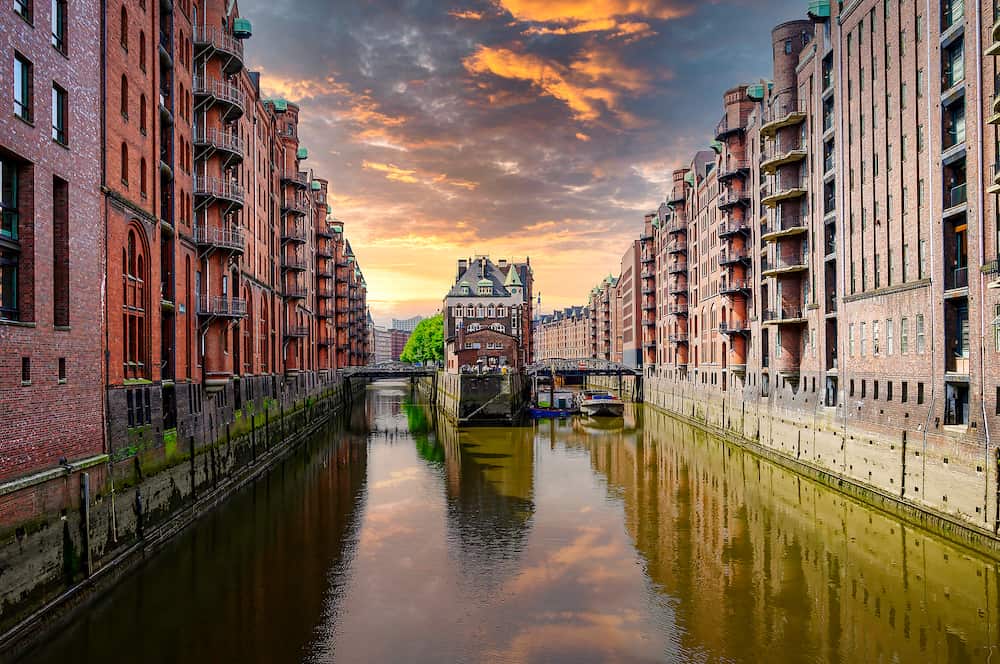
Drink Mulled Wine at the Christmas Markets
Almost every town and city in Germany host their own Christmas markets and Hamburg has no less than 30 separate markets dotted around the city centre.
The main market, outside the Rathaus, receives a special visit from Santa on his sleigh every night.
You can enjoy a cup of mulled wine, eat bratwurst, and buy some Christmas ornaments to take home and put on your tree.
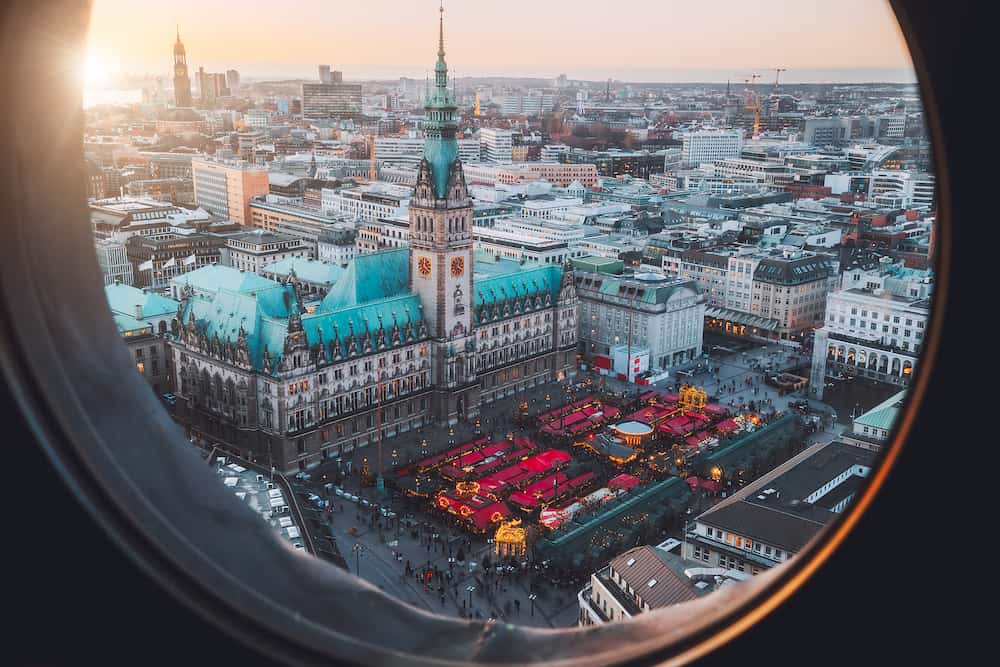
Party in the Fischmarkt
During the day, the St Pauli Fischmarkt is literally a fish and produce market. But by night, it’s one of Hamburg’s best nightlife venues.
Live bands play in the old auction hall and the rest of the market is packed with happy music fans, beer, neon lights, and good vibes.
Hamburg’s nightlife is second only to Berlin in Germany so it’s a great place to visit if you love to party.
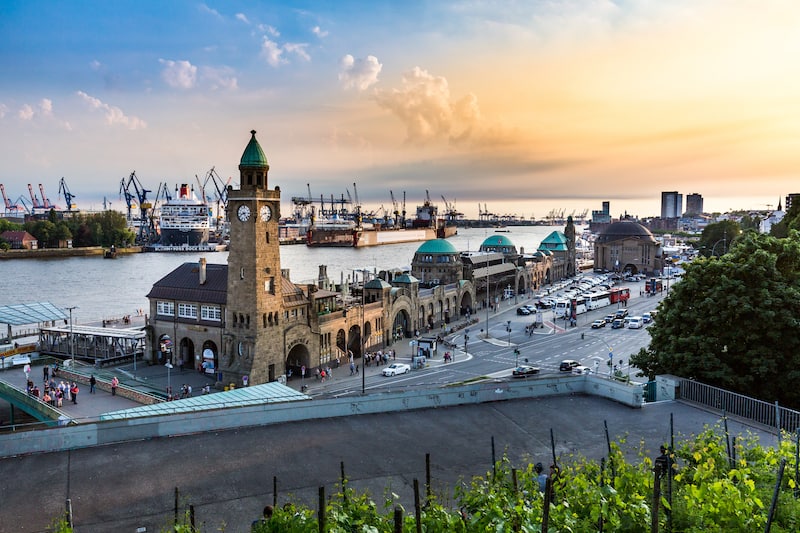
Places To Visit in Hamburg
Miniatur Wunderland
Visiting the Miniatur Wunderland is, without a doubt, one of the best things to do in Hamburg. Inside one of the old warehouses, you’ll find a multi-story exhibition complete with dozens of miniature models of famous global sites.
You’ll find miniature Swiss towns complete with model railways, miniature ships, tiny mountainous landscapes, and so much more. It’s fun for the entire family!

St Michael’s Church
This Baroque Lutheran Church is Hamburg’s most important church. Its interiors are bright and ornate but the pièce de résistance is the 132m tall clock tower.
If you have enough stamina to climb to the top, you’ll be rewarded with epic views across the entire city.
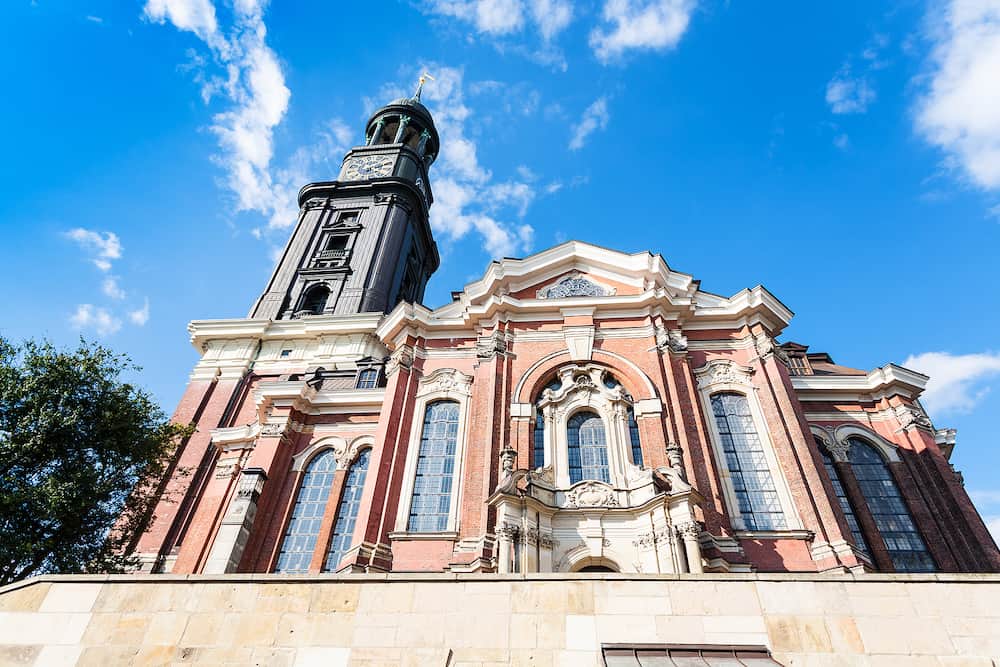
International Maritime Museum
You know that Hamburg’s port is extremely important to its history, but that’s probably about it. Learn more about Hamburg’s development over the last thousand or so years at the city’s International Maritime Museum.
You’ll find floor after floor of interesting stories and model ships that you’d need a whole day to see it all.
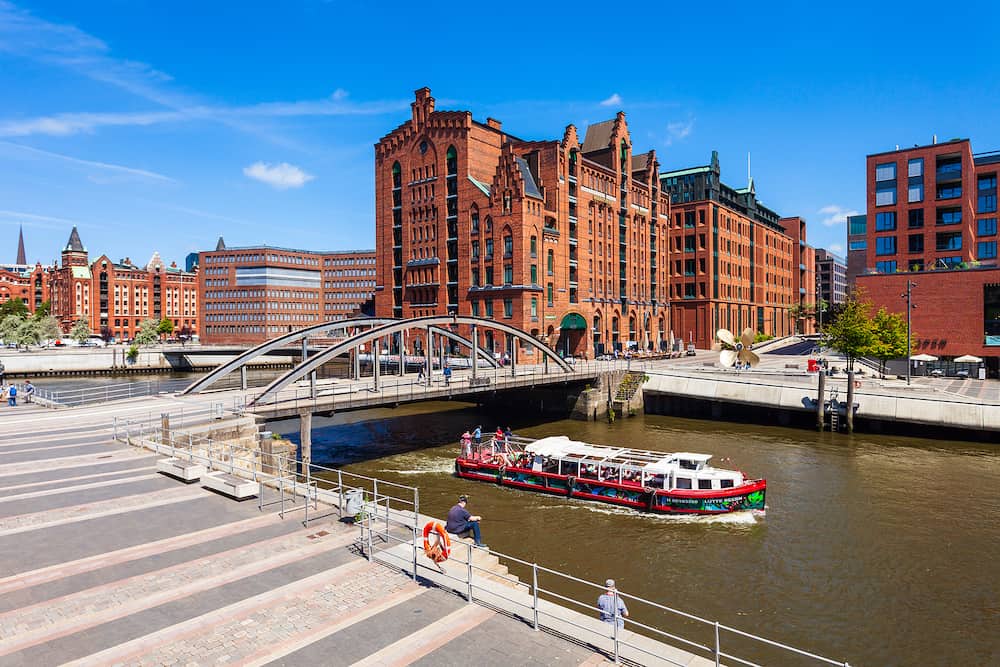
Kunsthalle Hamburg
Kunsthalle is Hamburg’s most important art museum near Hamburg Central Station. Three buildings are filled with all types of artwork from paintings and sculptures to textiles and photographs.
The pieces are from all eras right from medieval times to the present day from all over the world. Even if you’re not into art museums, the building itself is stunning.
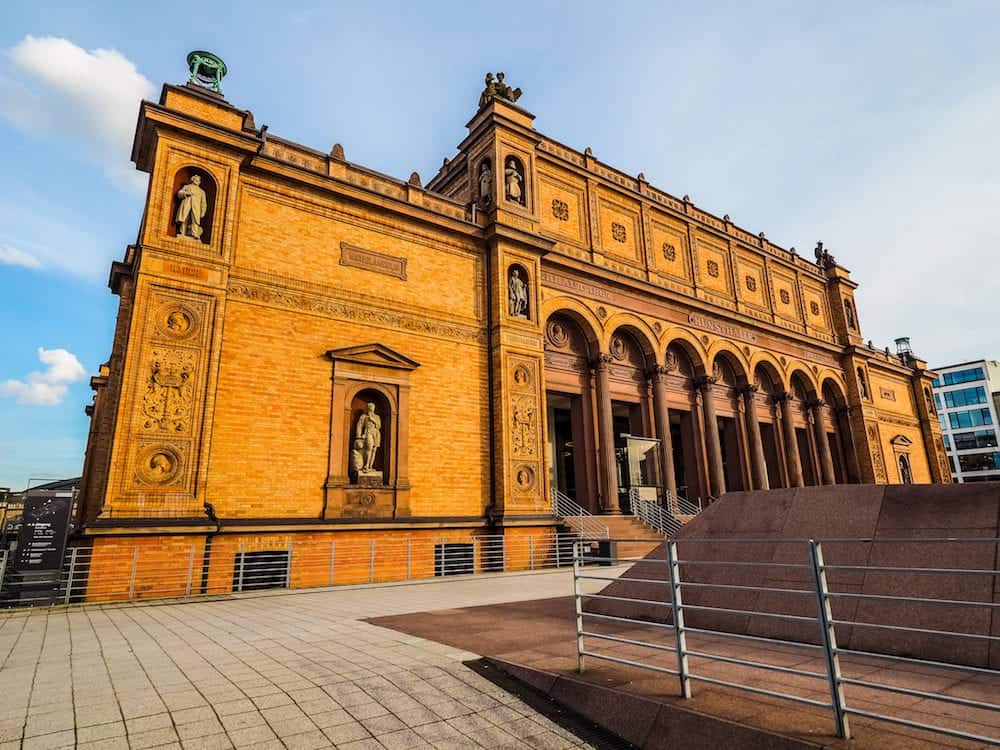
What To Eat in Hamburg
Most people think of sauerkraut, bratwurst, schnitzels, and pretzels as traditional German cuisine. But these are traditional dishes in Southern Germany and the Bavarian region.
Northern German cuisine, especially in port cities like Hamburg, includes a lot more fish and stewed vegetables.
One of the staple dishes of Hamburg is the fischbrötchen or fish sandwich. It’s usually made with pickled herring but fried fish, shrimp or crab meat are not uncommon. Onion and, yes, more pickles are often added.
Pan-fried plaice fish and stewed kale, in particular, will be on the menus of traditional restaurants on the coast of Northern Germany.
Franzbrötchen literally translates to “French roll” but they’re a cross between a croissant and a Scandinavian cinnamon roll and you’ll only find them in Hamburg. Rote grütze or Red Berry Pudding is a popular summer dessert here too.
And though drinking stein after stein of beer is a Bavarian stereotype, it won’t be difficult to find delicious German wheat beer in Hamburg either.

Where To Stay in Hamburg
Budget – As mentioned, Hamburg might be “average” compared to other German cities in terms of its affordability for tourists, but that doesn’t mean it’s cheap. Most of the best, affordable hostels are outside the city centre in neighbourhoods like St. Pauli.
MEININGER Hotel Hamburg City Center is actually a hostel rather than a hotel and it offers excellent value for money.
The decor is clean and modern yet colourful and they have lots of communal areas for activities like the game of pool. Most hostel dorms in Hamburg start from around €40 – €50 per night.
Mid-Range – The best mid-range hotels in Hamburg are mostly popular chain hotels, like the Radisson Blu. It’s in a beautiful location by Alster Lake and has a beautiful rooftop bar with amazing views over the city.
Rooms are modern and rates per night start from a reasonable €110. If you prefer boutique hotels, the SIDE Design Hotel Hamburg also has a lovely terrace and lots of amenities like spas and a pool. Citadines Aparthotel Michel Hamburg is a great choice if you prefer to stay in apartments when you travel.
Luxury – Also in a prime location overlooking the Alster Lake in the city centre is Fairmont Hotel Vier Jahreszeiten. It’s an elegant five-star hotel with rates starting from €325 per night.
It’s the perfect place to stay if you want to enjoy a romantic city break in Hamburg and prefer classically decorated hotels with chandeliers and dark wood furniture over sleek Scandinavian decor.
Hotel Louis C. Jacob is a more secluded, five-star hotel on the banks of the River Elbe. Rates start from around €200 per night (many with riverside views) and offer an upscale dining experience.
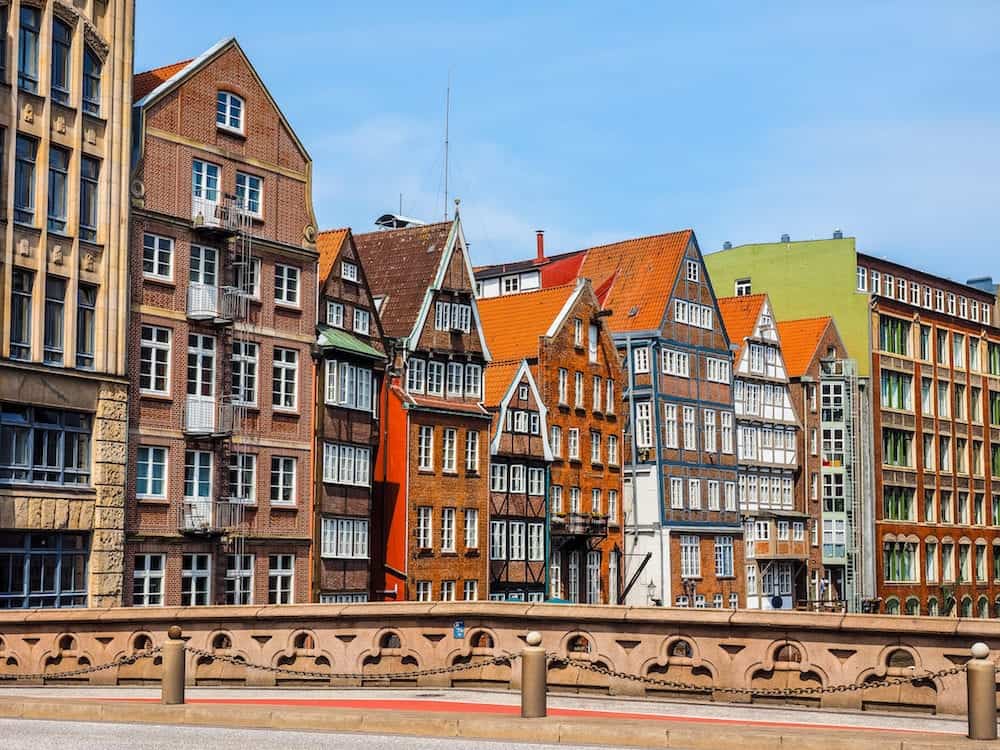
Tours To Do in Hamburg
Harbour Cruise
So much of Hamburg’s history is wrapped up in its relationship with the sea, so one of the best Hamburg tours to go on is a cruise.
It will allow you to see the city’s skyline from a different perspective and parts of the harbour that are difficult or impossible to see on foot.
Top Tip: Choose a harbour cruise trip that departs around sunset for an unforgettable experience.
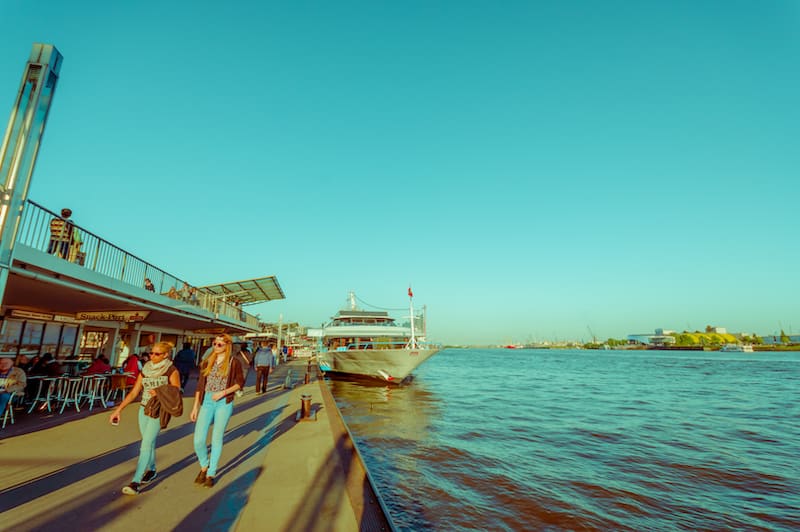
St Pauli/Reeperbahn Walking Tour
Most travel guides will warn you not to spend too much time in the Red Light District, but this Hamburg city guide will tell you the opposite!
The Reeperbahn is a notable street in the St. Pauli district. It’s lined with bars, nightclubs, and other sources of adult entertainment.
But did you know that it’s also the first place The Beatles toured before they got famous? You can learn about the history of the Fab Four and much more on Hamburg city walks like this one.
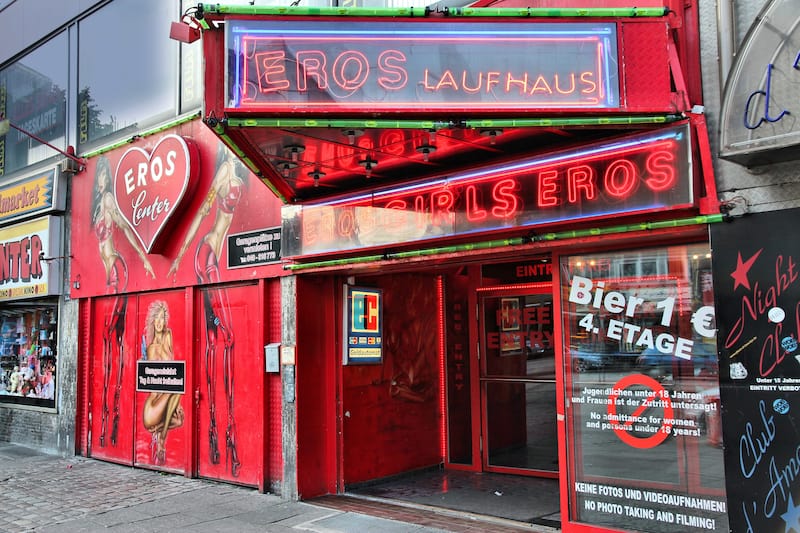
Cycling Tour
One of the best city tours of Hamburg, Germany you can book to experience the entire city is a cycling tour. It’s a sprawling place but there are hardly any hills and there are lots of parks which makes it ideal for cycling.
On a cycling tour, you can see landmarks like the Hamburg Rathaus city hall, Planten un Blomen, and St Michael’s Church.
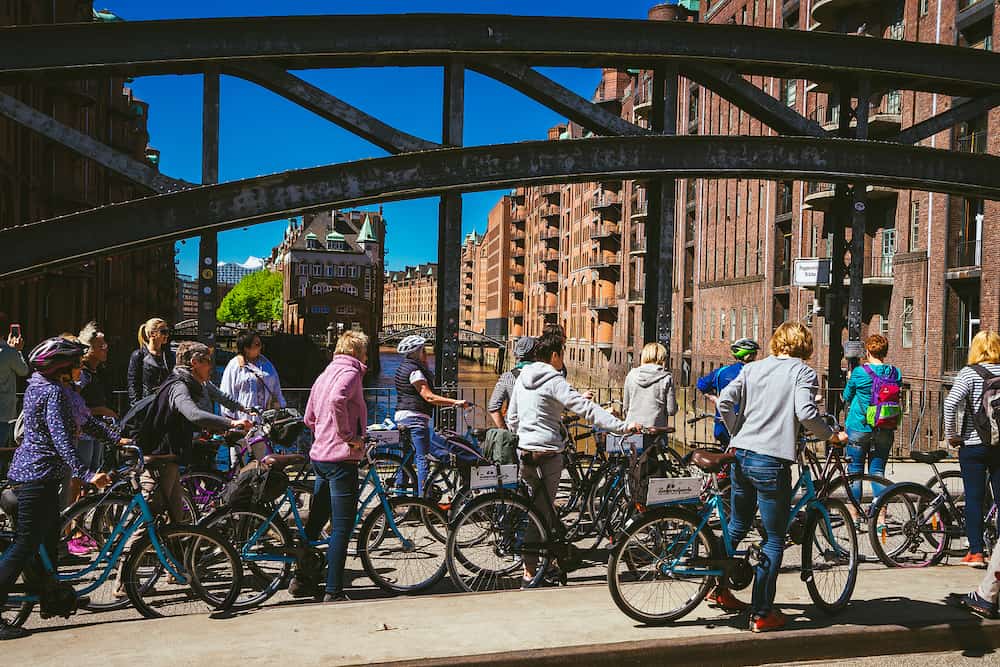
Day Trips From Hamburg
Lübeck
Lübeck is another German city on the coast and is only around a 60-minute drive from Hamburg. It’s a much smaller city with charming orange brick Gothic architecture. This is a great contrast to Hamburg’s more industrial, modern buildings.
The Marienkirche is a landmark 13th-century church in Lübeck that was rebuilt after its destruction during WWII. This, and many other buildings and parks, are why it’s a beautiful place to spend a relaxing day trip.
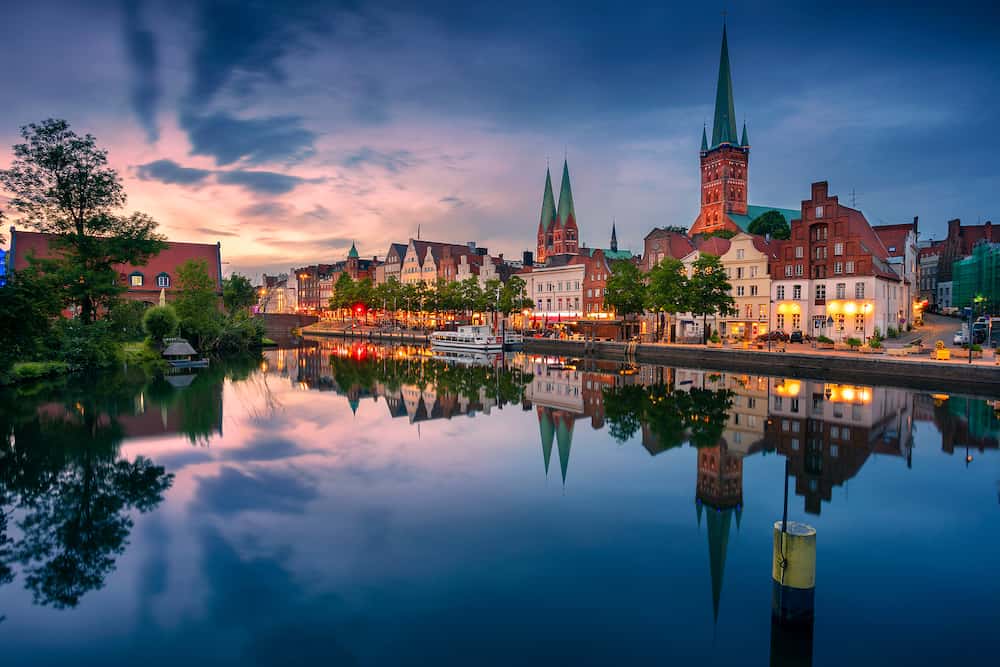
Reinbek Castle and Ahrensburg Palace
Germany has so many amazing fairytale castles but you won’t find any of them in Hamburg’s city centre. That’s why you should take a day trip out of the city to visit a couple.
Reinbek Castle (or Schloss Reinbek in German) is a renaissance building only a few miles east of Hamburg.
You can easily team a trip to this castle with a trip to Ahrensburg Palace around 35km northeast of Hamburg too. This is a 16th-century crisp white castle, very different to Reinbek, that houses lots of antiques and an art museum.
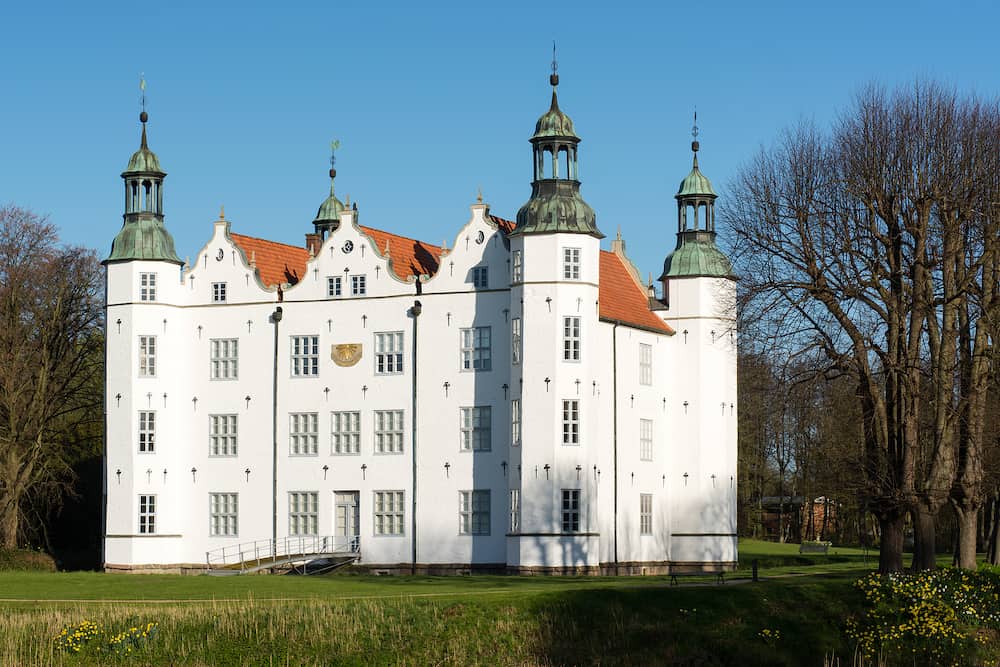
Hanover
Hanover is a little further away, about a two-hour drive or 150km south, but definitely doable on a long day trip. It’s the largest city in the Lower Saxony region.
You can spend the day wandering around the New Town Hall, strolling through the Herrenhäuser Gardens or check out their Sprengel Museum.
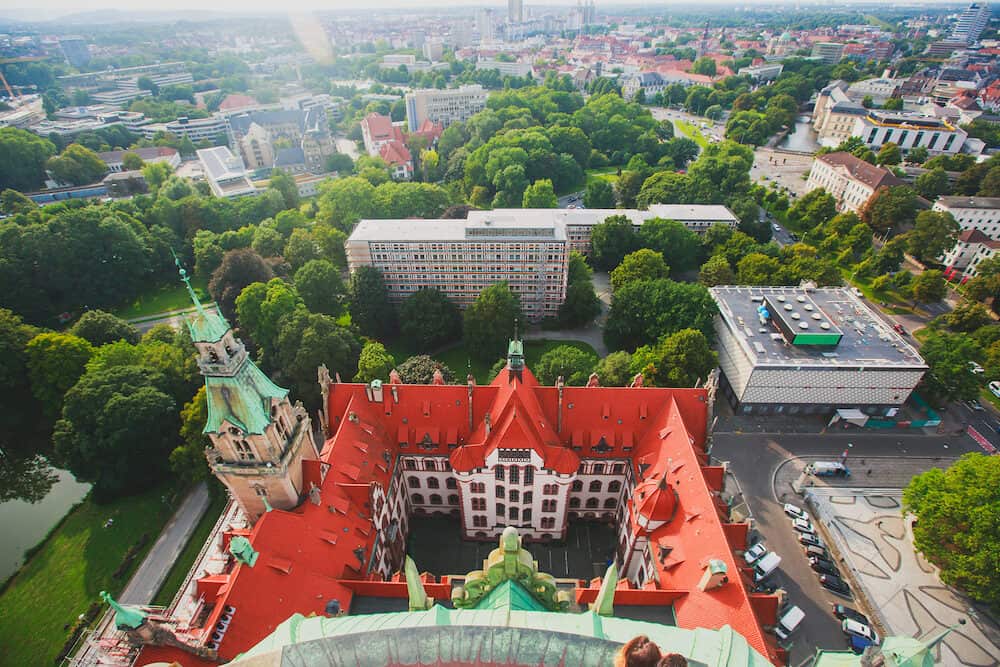
Recommended tours in Hamburg
- The Local Tour of Hamburg Historic Centre
- Hamburg Reeperbahn Small-Group Walking Tour
- Treasure Hunt through Hamburgs HafenCity
- Hamburg Small-Group Sunset Sailing Cruise on Lake Alster
- Hamburg CARD
- Private 2-Hour Hamburg Highlights Walking Tour
- Hop-on hop-off on the water with the Maritime Circle Line in Hamburg
- Discovery Ticket: Hop-on-Hop-off Tour, Harbor Cruise and Lake Alster Cruise
- Hamburg Pub Crawl including 1 hour flatrate for beer
- Hamburg St. Pauli and Red Light District Private Walking Tour
If you’d like to save it for later, please save it to Pinterest.
